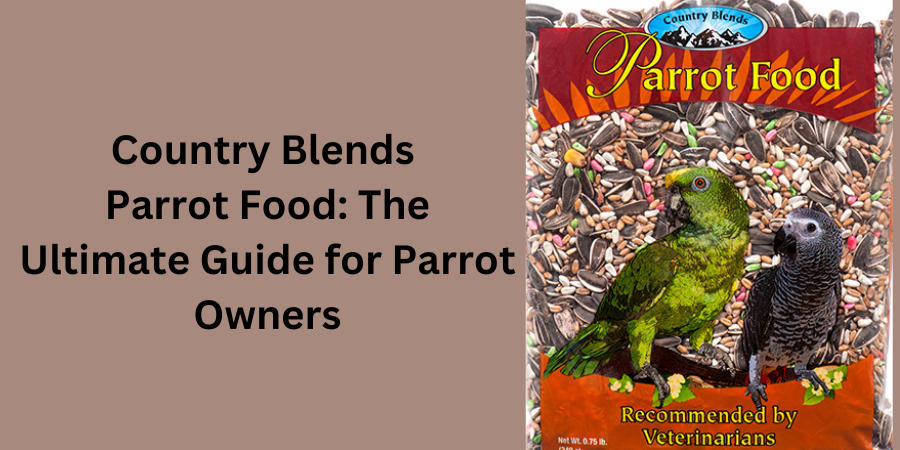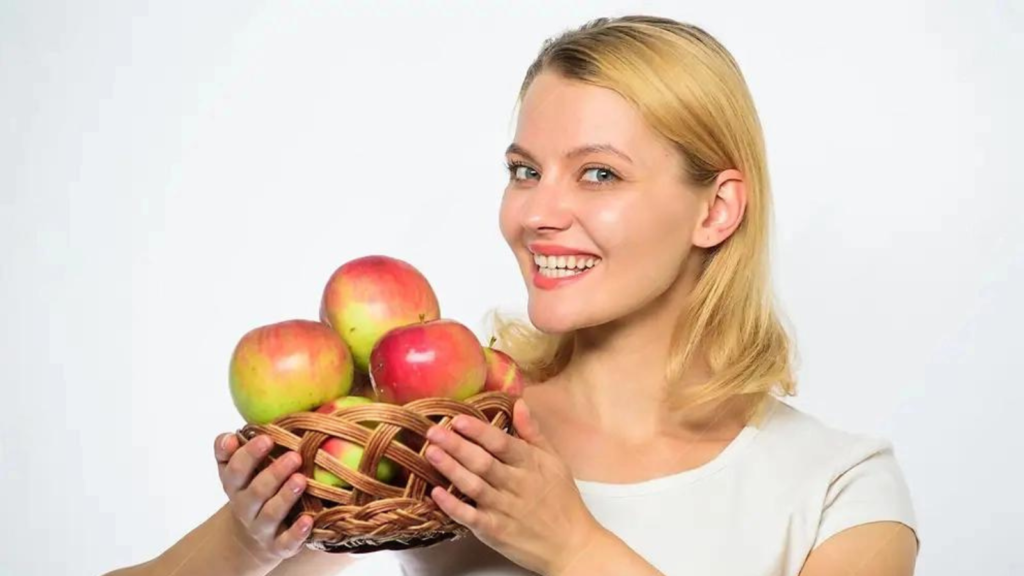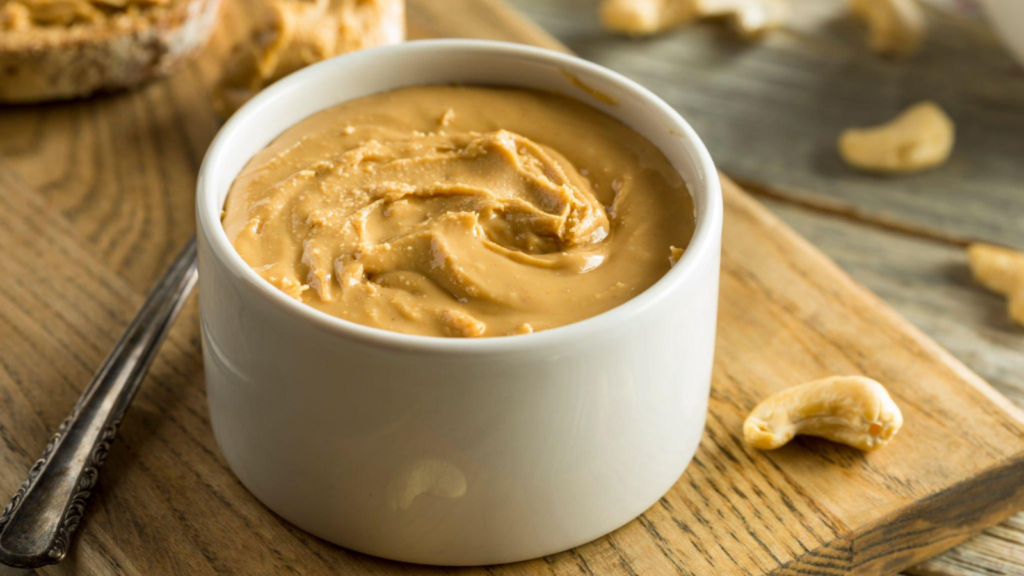Proper nutrition is crucial for the health and well-being of parrots. As a parrot owner, ensuring your feathered friend receives a balanced diet is one of your most important responsibilities. This comprehensive guide will explore various types of Country Blends Parrot Food, delve into the nutritional needs of parrots, and provide expert insights to help you make informed decisions about your parrot’s diet.
Types and Categories
Country Blends Parrot food comes in several forms, each with its unique benefits and considerations. Understanding these categories will help you choose the best diet for your parrot.
Seed-Based Blends
Seed-based blends are a traditional and popular choice among parrot owners. They typically contain a mix of seeds such as sunflower, safflower, and millet. While seeds can be a tasty treat for parrots, relying solely on a seed diet can lead to nutritional deficiencies. It’s essential to offer seeds as part of a balanced diet.
Pellet-Based Blends
Pellet-based blends are formulated to provide a complete and balanced diet for parrots. These blends often include essential vitamins and minerals, ensuring that parrots receive the nutrients they need. Pellets are designed to prevent selective eating, a common issue with seed-based diets.
Fresh Food Blends
Incorporating fresh fruits and vegetables into your parrot’s diet can provide essential vitamins and minerals. Safe options include apples, carrots, and leafy greens. Fresh food blends should complement pellet or seed-based diets, not replace them entirely.
Homemade Blends
Homemade parrot food blends allow for complete control over the ingredients. Recipes often include a mix of grains, legumes, fruits, and vegetables. While homemade blends can be nutritious, they require careful planning to ensure all nutritional needs are met.
Nutritional Requirements of Parrots
Parrots have specific nutritional requirements that must be met to maintain their health, and incorporating Country Blends Parrot Food can be an effective way to achieve a balanced diet. A proper diet includes a mix of proteins, fats, vitamins, and minerals.
Essential Nutrients
Parrots require a diet rich in proteins, healthy fats, carbohydrates, vitamins, and minerals. Each nutrient plays a vital role in their overall health and well-being. Country Blends Parrot Food offers a variety of ingredients that can help meet these nutritional needs.
Vitamins and Minerals
Vitamins such as A, D, and E are crucial for parrot health. Minerals like calcium, phosphorus, and magnesium are essential for bone health and metabolic functions. A varied diet, including Country Blends Parrot Food, helps ensure parrots receive these vital nutrients.
Protein Sources
Protein is vital for muscle development and repair. Good sources of protein for parrots include legumes, cooked eggs, and certain nuts. Including Country Blends Parrot Food in their diet can provide additional protein sources while balancing intake to avoid overfeeding.
Fat Content
Healthy fats are necessary for maintaining energy levels and supporting cell structure. However, too much fat can lead to obesity. Seeds and nuts provide fats, so they should be offered in moderation; Country Blends Parrot Food can contribute healthy fats when fed appropriately.
Seed-Based Blends
Seed-based blends are a staple in many parrot diets. However, it’s crucial to understand their benefits and limitations.
Common Seeds Used
Seeds such as sunflower, safflower, millet, and hemp are commonly included in Country Blends parrot food blends. Each type of seed provides different nutritional benefits, contributing to a balanced diet when used appropriately.
Benefits and Drawbacks
Seeds are appealing to parrots and can be part of a balanced diet. However, a seed-only diet can lead to nutritional deficiencies. Seeds are high in fat and lack essential vitamins and minerals, so they should be offered alongside other food types.
Popular Brands
Brands like Kaytee and Higgins produce high-quality seed blends designed for various parrot species. These blends often include a mix of seeds, grains, and added vitamins to enhance nutritional value.
Pellet-Based Blends
Pellet-based diets are increasingly recommended by avian veterinarians due to their balanced nutritional profile.
Ingredients in Pellets
Pellets are made from ground seeds, grains, fruits, and vegetables, fortified with vitamins and minerals. This ensures that parrots receive a comprehensive range of nutrients in each bite.
Advantages of Pellet-Based Diets
Pellets prevent selective eating, where parrots pick out their favorite seeds and leave the rest. This ensures they consume a balanced diet. Additionally, pellets are designed to meet the specific nutritional needs of different parrot species.
Leading Brands
Notable brands like Harrison’s Bird Foods and Zupreem offer high-quality pellet blends. These brands are known for their rigorous quality control and commitment to avian health.
Fresh Food Blends
Incorporating fresh foods into your parrot’s diet can enhance their nutritional intake and provide variety.
Fruits and Vegetables
Fresh fruits like apples, bananas, and berries, along with vegetables such as carrots, spinach, and bell peppers, are excellent additions to a parrot’s diet. These foods provide essential vitamins, minerals, and antioxidants.
Safe vs. Unsafe Foods
Not all fruits and vegetables are safe for parrots. Avoid avocado, chocolate, caffeine, and alcohol, as they can be toxic to birds. Always wash fruits and vegetables thoroughly and remove any seeds or pits before serving.
Preparing Fresh Blends
Fresh food blends can be prepared by chopping or grating a mix of safe fruits and vegetables. Ensure the pieces are small enough for your parrot to handle. Fresh foods should be offered in conjunction with pellets or seeds to ensure a balanced diet.
Homemade Blends
Creating homemade parrot food blends allows for customization and control over the ingredients.
Recipes for Homemade Parrot Food
Recipes can include a mix of cooked grains, legumes, chopped fruits, and vegetables. A simple blend might consist of cooked quinoa, chickpeas, chopped carrots, and blueberries.
Pros and Cons
Homemade blends can be tailored to your parrot’s specific nutritional needs and preferences. However, they require time and knowledge to prepare correctly. It’s essential to ensure that homemade diets are balanced and meet all nutritional requirements.
Safety Considerations
When preparing homemade parrot food, it’s crucial to avoid harmful ingredients and ensure proper storage to prevent spoilage. Consult with an avian veterinarian to ensure your homemade diet is nutritionally adequate.
Symptoms and Signs of Poor Nutrition
Recognizing the signs of poor nutrition can help you address issues before they become serious.
Behavioral Signs
Changes in behavior, such as lethargy, irritability, or decreased activity levels, can indicate nutritional deficiencies. Parrots may also show a lack of interest in food or become picky eaters.
Physical Symptoms
Physical signs of poor nutrition include weight loss, dull or discolored feathers, and skin problems. Other symptoms may include brittle nails, beak deformities, and poor muscle tone.
Long-Term Effects
Long-term nutritional deficiencies can lead to serious health issues such as weakened immune systems, bone deformities, and organ damage. Early detection and dietary adjustments are crucial to prevent these outcomes.
Causes and Risk Factors for Nutritional Deficiencies
Understanding the causes of nutritional deficiencies can help prevent them.
Poor Diet Choices
Relying on a single type of food, such as seeds, can lead to imbalances. A varied diet is essential for meeting all nutritional needs.
Lack of Variety
Parrots require a diverse diet to obtain a wide range of nutrients. Offering a mix of seeds, pellets, and fresh foods helps prevent deficiencies.
Over-Reliance on One Type of Food
Feeding your parrot only seeds or pellets can result in nutritional gaps. A balanced diet should include multiple food types to ensure comprehensive nutrition.
Diagnosing Nutritional Issues
Diagnosing nutritional deficiencies involves observing symptoms and conducting tests.
Common Tests and Diagnostics
Veterinarians may perform blood tests, fecal examinations, and physical assessments to diagnose nutritional issues. These tests help identify deficiencies and guide treatment plans.
When to Visit a Vet
If you notice signs of poor nutrition, it’s essential to consult an avian veterinarian promptly. Early intervention can prevent serious health complications.
Home Monitoring Tips
Regularly weigh your parrot and monitor their eating habits. Keep track of any changes in behavior or physical appearance and report these to your vet during check-ups.
Treatment Options for Nutritional Deficiencies
Addressing nutritional deficiencies involves dietary adjustments and sometimes medical interventions.
Dietary Adjustments
Switching to a balanced diet that includes seeds, pellets, and fresh foods can correct many deficiencies. Gradual changes are recommended to allow your parrot to adjust.
Supplements
Vitamin and mineral supplements can help address specific deficiencies. These should be used under the guidance of a veterinarian to avoid over-supplementation.
Professional Treatments
In severe cases, professional treatments such as injectable vitamins or specialized diets may be necessary. Regular follow-ups with a vet ensure the effectiveness of these treatments.
Preventive Measures
Preventing nutritional deficiencies involves proactive measures and regular monitoring.
Balanced Diet Tips
Provide a varied diet that includes seeds, pellets, and fresh foods. Rotate different food types to maintain interest and ensure a wide range of nutrients.
Regular Health Check-Ups
Routine veterinary check-ups help monitor your parrot’s health and catch any issues early. Blood tests and physical exams can identify potential deficiencies before they become serious.
Monitoring Parrot Behavior and Health
Keep a close eye on your parrot’s behavior and physical condition. Early detection of changes can help prevent nutritional issues from developing into more serious health problems.
Personal Stories or Case Studies
Learning from the experiences of other parrot owners can provide valuable insights.
Real-Life Success Stories
Many parrot owners have successfully transitioned their birds to balanced diets, improving their health and well-being. Sharing these stories can offer encouragement and practical tips.
Experiences from Parrot Owners
Hearing from other parrot owners about their challenges and solutions can help you navigate similar issues. Community support is invaluable for new and experienced parrot owners alike.
Lessons Learned
Personal stories often highlight the importance of a balanced diet and regular health monitoring. These lessons can guide you in providing the best care for your parrot.
Expert Insights
Expert advice can help you make informed decisions about your parrot’s diet.
Quotes from Avian Veterinarians
“Ensuring a balanced diet for parrots is crucial for their long-term health. A mix of pellets, seeds, and fresh foods can help meet their nutritional needs.” – Dr. Jane Smith, Avian Veterinarian
Nutritionist Recommendations
“Parrots thrive on variety. Incorporating different food types and regularly rotating them ensures they receive all essential nutrients.” – John Doe, Avian Nutritionist
Industry Expert Advice
“Quality is key when choosing Country Blends parrot food. Opt for reputable brands that prioritize nutritional balance and safety.” – Mary Johnson, Parrot Food Expert
Conclusion
Providing a balanced and varied diet is essential for your parrot’s health and happiness. Understanding the types of parrot food, recognizing the signs of nutritional deficiencies, and seeking expert advice can help you make informed decisions. By following the guidelines outlined in this article, you can ensure your parrot thrives and enjoys a long, healthy life.
Remember, the key to a healthy parrot is a balanced diet, regular health check-ups, and staying informed about their nutritional needs. Your parrot’s well-being is in your hands, so take the time to provide the best care possible.


